Where to take a tick for analysis
Content
- Analysis of encephalitis and other diseases
- Analysis of encephalitis and other diseases
- Analysis of encephalitis and other diseases
- Analysis of encephalitis and other diseases
In the period from April to September in many regions of the country ticks begin their active life activities. They can be found not only in the wild in the forest or in the fields, but also in city parks, squares, near the territory. A small representative of arachnids is a carrier of many dangerous diseases, therefore, when a parasite is found on the skin, it should be pulled out and taken to a laboratory.To do this, you need to know where to take the tick for analysis in order to find out with which virus it could infect a person.
Important!
Once a tick has been found on the body of the victim, it must be removed. This can be done independently with the help of a thread, tweezers or a special tool sold in a pharmacy, or you can immediately contact a medical professional. The more the parasite is in the bloodsucking state, the more likely it is that a person will become infected with a virus.
Medical institutions
In any large city of Russia there are medical centers for the study of the epidemiological situation in the region, which are supervised by the State Sanitary and Epidemiological Surveillance. At these medical institutions, there are laboratories for testing ticks for infection with dangerous viruses. In Moscow, you can ask for advice on where to carry a tick for analysis at the Federal Budgetary Educational Institution of Hygiene and Epidemiology Center, which is located at: Alekseevskaya metro station, Grafsky Pereulok, 4, building 2 (entrance from the yard, past the barrier), phone: +7 ( 495) 687-40-47.
You can take on the analysis of parasites in the laboratory at the center, the schedule of the admission department: daily on weekdays from 9.00 to 15.30 (lunch time from 13.00 to 13.30).
Reception of ticks for analysis is also carried out in Federal State-Funded Healthcare Institution “Federal Center for Hygiene and Epidemiology” of Rospotrebnadzor, located at the address: 19A, Varshavskoye Highway, phone: +7 (495) 954-27-07, +7 (495) 954-45- 36
Moscow medical centers are located in different administrative districts of the North-Eastern Administrative District, Joint-Stock Company, Central Administrative District, South-Eastern Administrative Okrug, and Northern Administrative Okrug. This allows any resident of the capital to contact the nearest institution as soon as possible. In addition to Moscow diagnostic centers, the tick study is carried out in regional institutions, such as the laboratory of the Center for Hygiene and Epidemiology in the Moscow Region in Mytishchi, the National Diagnostic Center in Shchelkovo, the Institute of Poliomyelitis and Viral Encephalitis in Vnukovo and others.
Important!
A tick should be carried to the nearest medical facility no later than 2 days after the parasite bite. In the early period of virus penetration into the human body, the health effects do not yet take on serious proportions, therefore it is necessary to diagnose and begin treatment as soon as possible.
When contacting the laboratory, you are required to provide your contact details, give the date and place where, in the opinion of the victim, the parasite is attached.Information about the area where the bite occurred is very important for keeping statistics in endemic areas of the country. This statistics is not the first year throughout the country. The list of endemic zones includes federal districts and their cities, where the highest number of attacks of ticks infected with dangerous viruses, such as:
- tick-borne encephalitis - a viral disease that affects the human nervous system, has a destructive effect on the internal organs, can lead to disability or death;
- Borreliosis or Lyme disease - a dangerous infectious disease, the bacteria that affect the internal organs of the victim, disrupt the cardiovascular and nervous system;
- Anaplasmosis - an infectious disease caused by the bacterium Anaplasma, which, by attacking the cells of granulocytes, reduces the body's immunity;
- Ehrlichiosis - an infectious disease caused by Ehrlichia bacteria, whose activity disrupts the work of the heart, kidneys, brain, lungs.
In case of a positive analysis, the laboratory employees immediately contact the victim, who should arrive at the medical center as soon as possible for hospitalization and conduct a full treatment cycle.If the study showed the absence of any viruses, the administrator can send a printout of the results to the address of the client who applied.
The cost of analyzing a tick for the presence of the causative agent in it in Moscow’s state medical institutions is about the same:
- tick analysis for encephalitis - 500 rubles;
- research on borreliosis - 500 rubles;
- to analyze the parasite for the presence of ehrlichiosis and anaplasmosis costs 500 rubles;
- A comprehensive study on four infections - 2000 rubles.
On a note!
Ticks are taken for research and some private medical centers and laboratories. Their activities are regulated by the Ministry of Health, but the cost of their services is usually overestimated. The average price for checking ticks for encephalitis and borreliosis varies from 1,000 to 2,000, but may be higher. People often turn to private laboratories because they are located in a convenient place and can provide an opportunity for rapid analysis, which will be ready in a few hours.
Whether it is necessary to take an analysis only in a budget institution, patients decide.State research centers guarantee the availability of highly qualified specialists and reasonable prices for services. Private laboratories position themselves at a high level of service and an individual approach to each person who applies. These factors directly affect how much it costs to check a tick for encephalitis or another dangerous disease by contacting non-state medical centers.
Storage and transportation of the tick
Check tick on encephalitis at home is impossible. And hope that the parasite was not infected with dangerous infections, arrogant and stupid. Therefore, it is not necessary to wait for the first symptoms of the disease, it is necessary to take the tick to a special laboratory, which is located in every major village. To hand over a tick for analysis for free is unlikely to succeed. This procedure takes some time and is time consuming. But it will be possible to save money if the examination of a tick for encephalitis or another virus will be carried out in a state institution.
After the tick has been removed from the human body, it must be placed in a special tube or any glass jar with a lid.It is necessary to take the parasite in this tank, putting a damp cloth inside to create a favorable microclimate. If it was not possible to bring the arachnid to the analysis on the first day, you need to remember how to store the tick before analysis: put the jar of parasite in the refrigerator and store it there, but not more than 2 days.
On a note!
During transportation of the parasite in hot weather, an additional task appears: how to keep the tick alive before analysis. The idea becomes feasible if ice is added to the tank. As it melts, the arachnid will end up in the water, but this is not a bad thing, as the tick tolerates such conditions perfectly.
It often happens that when a tick is pulled out of a wound at the site of a bite, the head or jaws remain under the skin, and the parasite itself is torn to pieces. At such a moment, the victim is wondering if it is possible to pass a dead tick for analysis. But modern diagnostics allowed to conduct PCR studies of the tick, even in its body parts. A prerequisite for diagnosis is the preparation of the tick, that is, cleansing it from various creams, oils and other emulsions that could get on the parasite during its removal from the body. After that, the arthropod can be attributed to analysis.
Signs of disease
If for some reason it was not possible to save and check the tick for encephalitis or infection with another virus, you can wait and hope that the illness will pass by. The first signs of the disease can manifest itself 2-3 days after the bite or only a month later. Usually, all diseases carried by ticks are similar in their first symptoms:
- fever;
- headache;
- nausea;
- weakness and apathy.
In such cases, the victim of a bite should seek medical care at the nearest medical facility to conduct a haemotest for the presence of the causative agent of any virus in the blood. The study period does not take much time, and after a few hours the results will be ready.
On a note!
According to statistics for 2017, the most common disease, the carrier of which is bloodsucking arachnid, in the Moscow region is borreliosis. Of the 9,000 parasites studied, Lyme disease accounted for almost 20%. After it follows anaplasmosis with 2.2% and ehrlichiosis with 0.4% of cases.
Tick-borne encephalitis near Moscow is rare. But in Taldomsky and Dmitrovsky areas, parasites infected with this virus may bite.
Tick analysis for viruses
In order to diagnose the infection of a parasite by any virus, it is taken for PCR examination. This polymerase chain reaction method is a high-precision type of molecular genetic diagnosis. Since ticks are examined for the presence of virus DNA, even a dead parasite or its body parts will be suitable for analysis. The condition for successful diagnosis is only that this tick was removed from a person not more than two days ago and was stored in certain conditions.
With a positive result of the analysis of the parasite on tick-borne encephalitis, blood is taken from the victim. How much analysis is done depends on several factors:
- private laboratories usually report results earlier than in public ones;
- if the number of applicants to a medical institution exceeds the usual workload, then the result of a blood test will have to wait 2-3 days;
- If you pay for the express analysis service, the answer will be ready within a few hours.
The result of the study for the presence of encephalitis virus comes in the form of a list indicating the quantitative content of antibodies to the disease.The concentration of these antibodies in the blood is indicated by the term "titer". In order to analyze the results with the greatest accuracy, a second blood collection is performed in a week. If in both cases the fact of human infection with tick-borne encephalitis is confirmed, he is prescribed an injection of a specific immunoglobulin, which should suppress the infection in the body. Then a complex of immunotherapy, taking antiviral drugs and antibiotics.
If a person has Lyme disease, in addition to donating venous blood, additional studies of the cerebrospinal or joint fluid are conducted. This is due to the fact that the causative agents of borreliosis are concentrated not only in the blood, but also in other fluids and tissues of the victim.
If it was possible to detect the presence of a virus at an early stage of infection, there is a high probability of successful treatment without harming human health. The recovery of the victim depends entirely on how quickly he found the tick on his body and turned to specialists for help.

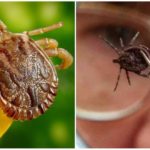
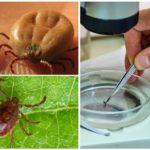
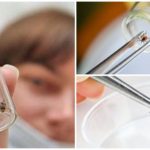
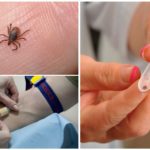
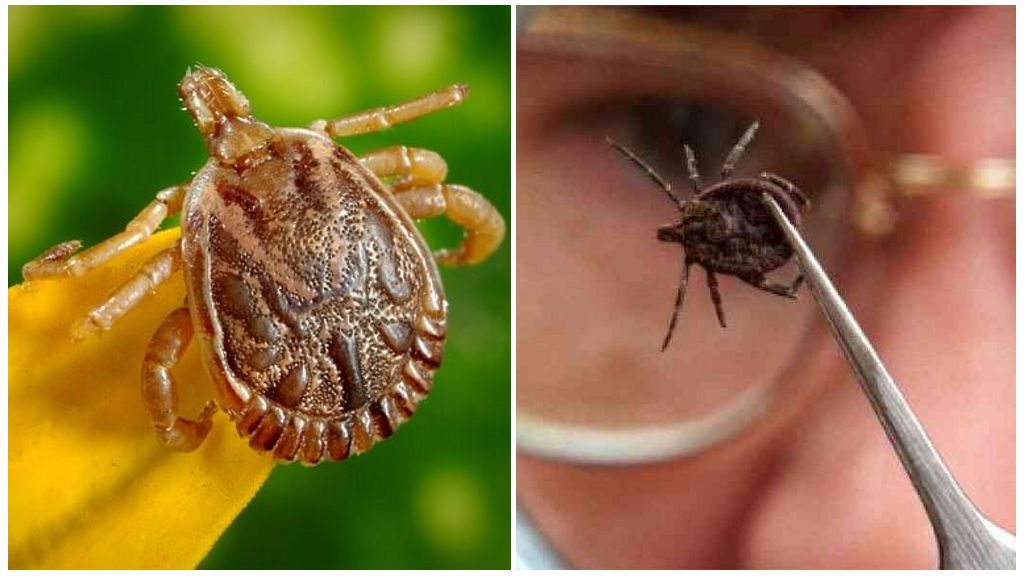
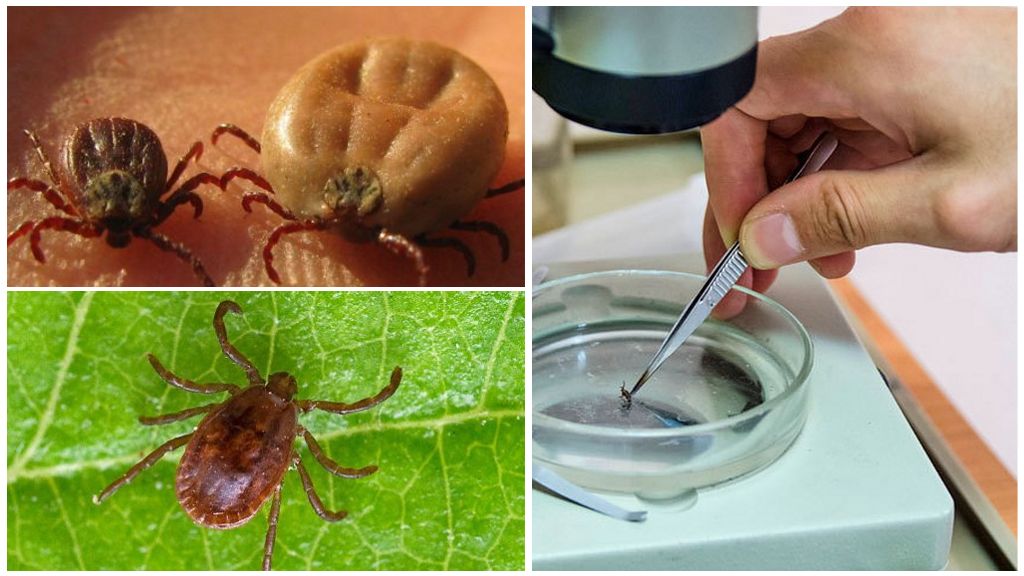



 (votes: 9, average rating: 4.56 out of 5)
(votes: 9, average rating: 4.56 out of 5)


